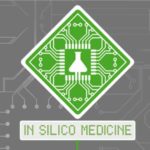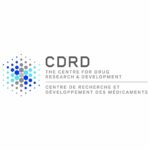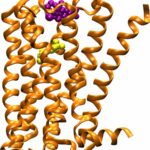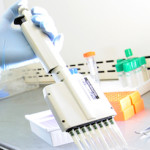Sarah Middleton from GSK gave this talk at DOE CSGF 2019. “Advances in techniques for single-cell RNA sequencing have made it possible to profile gene expression in individual cells on a large scale, opening up the possibility to explore the heterogeneity of expression within and across cell types. This exciting technology is now being applied to almost every tissue in the human body, with some experiments generating expression profiles for more than 100,000 cells at a time.”
Insilico Medicine Brings GENTRL AI System to Open Source for Drug Discovery
Insilico Medicine has developed GENTRL, a new artificial intelligence system for drug discovery that dramatically accelerates the process from years to days. “By enabling the rapid discovery of novel molecules and by making GENTRL’s source code open source, we are ushering in new possibilities for the creation and discovery of new life-saving medicine for incurable diseases — and making such powerful technology more broadly accessible for the first time to the public.”
Video: ATOM Consortium to Accelerate AI in Drug Discovery with NVIDIA
The Public-private consortium ATOM has announced today that it is collaborating with NVIDIA to scale ATOM’s AI-driven drug discovery platform. “Scientists at ATOM have created a predictive model development pipeline that calls upon large datasets to build and test predictive machine learning models which consider pharmacokinetics, safety, developability, and efficacy. NVIDIA will provide additional resources that will enable this pipeline to be run at increased scale and speed.”
Canada’s CDRD to use AI for Drug Discovery
Today Canada’s National Centre for Drug Research and Development announced a collaboration with Schrödinger Inc to use artificial intelligence to help facilitate the development of new therapeutic antibodies. “We’re excited to work with CDRD to aggressively translate scientific discoveries into innovative therapeutic products,” said Dr. Ramy Farid, Schrödinger’s President and CEO. “This partnership is an important step forward in our efforts to extend the successes we’ve had in small molecule drug discovery to the development of novel biologics.”
Video: HPC at NIBR
“Focused on High Performance and Scientific Computing at Novartis Institutes for Biomedical Research (NIBR), in Basel Switzerland, Nick Holway and his team provide HPC resources and services, including programming and consultancy for the innovative research organization. Supporting more than 6,000 scientists, physicians and business professionals from around the world focused on developing medicines and devices that can produce positive real-world outcomes for patients and healthcare providers, Nick also contributes expertise in bioinformatics, image processing and data science in support of the researchers and their works.”
Supercomputing Drug Discovery to Combat Heart Disease
Using a unique computational approach to rapidly sample proteins in their natural state of gyrating, bobbing, and weaving, a research team from UC San Diego and Monash University in Australia has identified promising drug leads that may selectively combat heart disease, from arrhythmias to cardiac failure.
Insilico Applies Deep Learning to Drug Discovery
“The world of artificial intelligence is rapidly evolving and affecting every aspect of our daily life. And soon this progress will be felt in the pharmaceutical industry. We set up the Pharma.AI division to help pharmaceutical companies significantly accelerate their R&D and increase the number of approved drugs, but in the process we came up with over 800 strong hypotheses in oncology, cardiovascular, metabolic and CNS space and started basic validation. We are cautious about making strong statements, but if this approach works, it will uberize the pharmaceutical industry and generate unprecedented number of QALY,” said Alex Zhavoronkov, PhD, CEO of Insilico Medicine, Inc.
Accelerated Drug Discovery with Intel Xeon Phi
Drug discovery has accelerated with the advent of high performance computing and new algorithms. “A structural bioinformatics algorithm, eFindSuite, can be used to demonstrate how moving the code to a highly parallel implementation can speed up the computation, by using both the Intel Xeon processor and the Intel Xeon Phi coprocessor. eFindSuite is implemented in both Fortran 77 and C++.”
Video: HPC Tools to Discover New Drugs
“Intelligent Pharma is a biotechnology company dedicated to developing, commercializing and using new computational technologies for drug discovery. According to our clients’ needs, we carry out customized computational chemistry projects using cutting-edge technologies.”
Video: Drug Discovery Team Finds Inspiration at SDSC
“When Professor Ross Walker explains what he does for a living, he says he’s on the cutting edge of drug discovery research using supercomputers. Today, he and his team build supercomputer molecular biology software thanks in part to a partnership with Intel’s Software Academic Program. The program provides tools and resources to help Walker’s molecular dynamics lab develop highly effective supercomputer simulations.”












